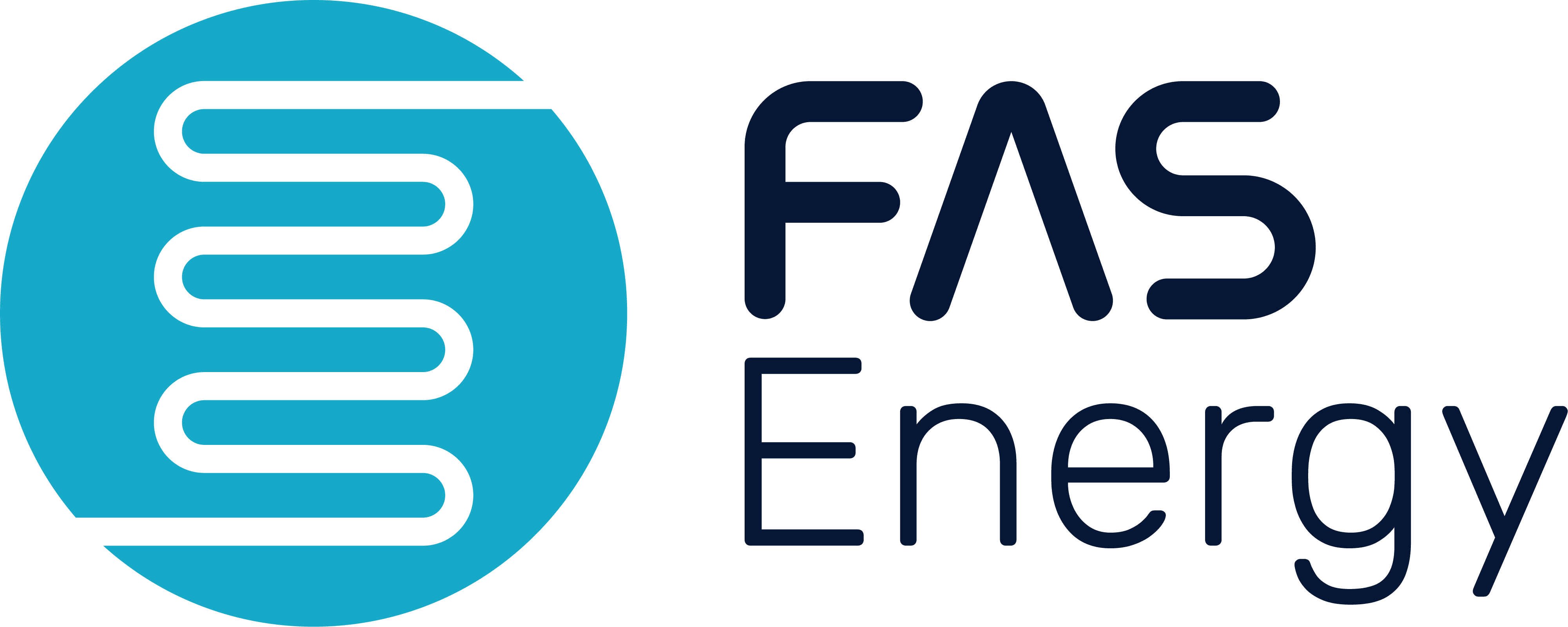When you’re crafting the ideal environment for your new home, you have a golden opportunity to blend comfort with innovation by opting for a ducted heat pump system. FAS Energy stands at the forefront of this tech, bringing you discreet, energy-saving climate control that provides consistent warmth or cooling to every corner of your abode. Imagine your entire space wrapped in a cocoon of perfect temperature, all while maintaining a chic, clutter-free look with hidden ducts. Thanks to their expertise in integrating these systems seamlessly into the architectural design, your new home not only becomes a sanctuary of comfort but also a testament to smart, sustainable living. Ready to create a haven of whole-home comfort? Reach out to FAS Energy and transform your living space into the epitome of modern, eco-friendly elegance.

Understanding Ducted Heat Pump Systems
The Basics of Ducted Heat Pumps
When you’re exploring heating and cooling solutions, ducted heat pump systems are an excellent and efficient option. These systems work by using a central heat pump to produce warm or cool air that is then distributed throughout your home via a network of ducts. The ducts are usually hidden away in the ceiling or under your floor, keeping them out of sight.
How Ducted Systems Distribute Air
The air distribution in a ducted system is simple yet effective. An outdoor unit connects to an indoor unit that pushes the air through the ducts. These ducts lead to vents in various rooms or zones of your home, ensuring that each space reaches your desired temperature.
Components of a Ducted Heat Pump
Your ducted heat pump system consists of a few key components: an outdoor unit that houses the compressor and condenser; an indoor unit where the air handler and fan are located; the ductwork that channels air; and vents that deliver the air to different rooms. There may also be filters and a thermostat to regulate temperature and maintain air quality.
Advantages of Ducted Heat Pumps
Uniform Heating and Cooling
Ducted heat pumps are marvelous at providing consistent temperature control throughout your home. No more hot or cold spots in different areas – just uniform comfort in every room.
Seamless Aesthetics
With all the essential components tucked away, ducted heat pumps offer a clean, modern look. There are no bulky units on walls or floors – just discrete vents that don’t distract from your home’s design.
Energy Efficiency
You’ll love the cost savings associated with ducted heat pumps due to their energy efficiency. Particularly effective in larger homes, they can reduce your energy consumption when compared to other heating and cooling methods.
Zoning Capabilities
Imagine being able to control the temperature in different areas of your home independently. That’s what zoning allows you to do with a ducted heat pump system, catering to the comfort preferences of everyone in your household.
Quiet Operation
Ducted systems are typically quieter than other heat pump types as the main unit is installed away from living areas, reducing noise disruption and enhancing your home’s tranquility.

Selecting the Right Ducted Heat Pump
Assessing Your Home’s Requirements
Before selecting a ducted heat pump, it’s crucial to understand your home’s specific needs. Factors like home size, climate, and insulation will impact the type of system that’s best for you.
Understanding Heat Pump Specifications
Heat pumps come with various specifications indicating their capacity, efficiency, and performance. Familiarize yourself with these to make an informed decision about which system suits your requirements.
The Importance of Professional Sizing and Design
Professional sizing and design ensure that your ducted heat pump system matches your home’s unique heating and cooling needs. This step is vital to ensure efficiency and comfort.
Integrating Ducted Systems in New Builds
Planning for Ducted Heat Pumps During Construction
If you’re in the process of constructing a new home, planning for a ducted heat pump system early on is wise. This allows the system to be perfectly tailored to the layout and design of your house.
Working with Building Teams for Optimal Installation
Collaborating with your building team is crucial for the seamless integration of a ducted heat pump system into your new build. This partnership will result in an efficient and discreet installation.
Design Considerations for New Homes
Think about how your ducted system will affect the design of your new home. Factors such as duct placement, vent locations, and the positioning of the indoor and outdoor units should all complement your home’s architecture.

Zoning Your Home with a Ducted Heat Pump
What is Zoning?
Zoning refers to dividing your home into areas with individual temperature control. It adds a layer of customization to your heating and cooling that can cater to different preferences and usage patterns.
Benefits of Zoning
With zoning, you have the power to heat or cool only the areas in use, potentially leading to energy savings. Additionally, it allows for personalized comfort within each zone of your home.
How to Decide on Zoning Configuration
Deciding on a zoning configuration typically involves considering your home’s layout, room usage, and occupant preferences. It might take some thinking, but it’s a crucial step for achieving optimal comfort and efficiency.
Aesthetic Considerations and Installation
Minimizing Visual Impact
A significant advantage of ducted systems is their minimal aesthetic impact. Strategically placing vents and ductwork helps maintain the design integrity of your home.
Placement of Indoor and Outdoor Units
The placement of your system’s components should be thoughtfully considered. Ideally, they should be out of the way, yet accessible for maintenance, and not impede on your home’s visual appeal.
Ductwork Integration Strategies
Incorporate your ductwork into your home’s design in a way that’s functional yet unobtrusive. This requires thoughtful planning and sometimes creative solutions to keep the ducts hidden.

The Efficiency of Ducted Heat Pumps
Heat Pump Efficiency Metrics
To understand the efficiency of your ducted heat pump, you’ll need to become familiar with metrics like SEER (Seasonal Energy Efficiency Ratio) and HSPF (Heating Seasonal Performance Factor) which indicate cooling and heating efficiency, respectively.
Comparing Ducted to Other Heat Pumps
When comparing ducted systems to other types, consider the long-term energy savings, the ability to heat and cool large spaces, and the comfort levels that ducted systems provide.
Maximizing Energy Savings
Maximize energy savings by ensuring proper installation, regular maintenance, and using programmable thermostats or zoning to tailor your heating and cooling to when and where you need it.
Smart Controls and Automation for Ducted Systems
Wi-Fi Heat Pump Control
With Wi-Fi-enabled controls, you can adjust your ducted system remotely, ensuring your home is at the perfect temperature whenever you need it to be.
Thermostat and Zone Control Options
Sophisticated thermostat and zone controls give you the power to fine-tune your environment, room by room, for precise comfort and efficiency.
Integrating with Home Automation Systems
A ducted heat pump can often be integrated with broader home automation systems, allowing for even greater control and convenience across all your smart home devices.
Maintenance and Servicing of Ducted Heat Pumps
Regular Maintenance Schedule
Keeping to a regular maintenance schedule is key to ensuring your ducted heat pump operates at peak efficiency and has a long lifespan.
Common Maintenance Tasks
These tasks include cleaning filters, checking ducts for leaks, and ensuring the outdoor unit is clear of debris – all things you can do to help keep your system running smoothly.
When to Call Professionals for Servicing
For more technical issues or annual check-ups, you’ll want to call in professionals to service your system. This keeps everything in tip-top shape and prevents minor problems from becoming major ones.
Financial Considerations and Incentives
Initial Investment and ROI
While the initial investment for a ducted heat pump system may be higher than other heating and cooling options, the return on investment comes in the form of lower energy bills and increased property value.
Government Incentives and Rebates
To offset the initial cost, look into government incentives and rebates that may be available for energy-efficient home improvements like ducted heat pump installations.
Financing Options for Heat Pump Installation
Various financing options can make the installation of a ducted system more accessible. It’s worth exploring these to make your home more comfortable and efficient without breaking the bank.
Remember, a ducted heat pump system is an investment in your comfort, home value, and the environment. Take your time to consider all the factors so that you can enjoy the many benefits for years to come.

